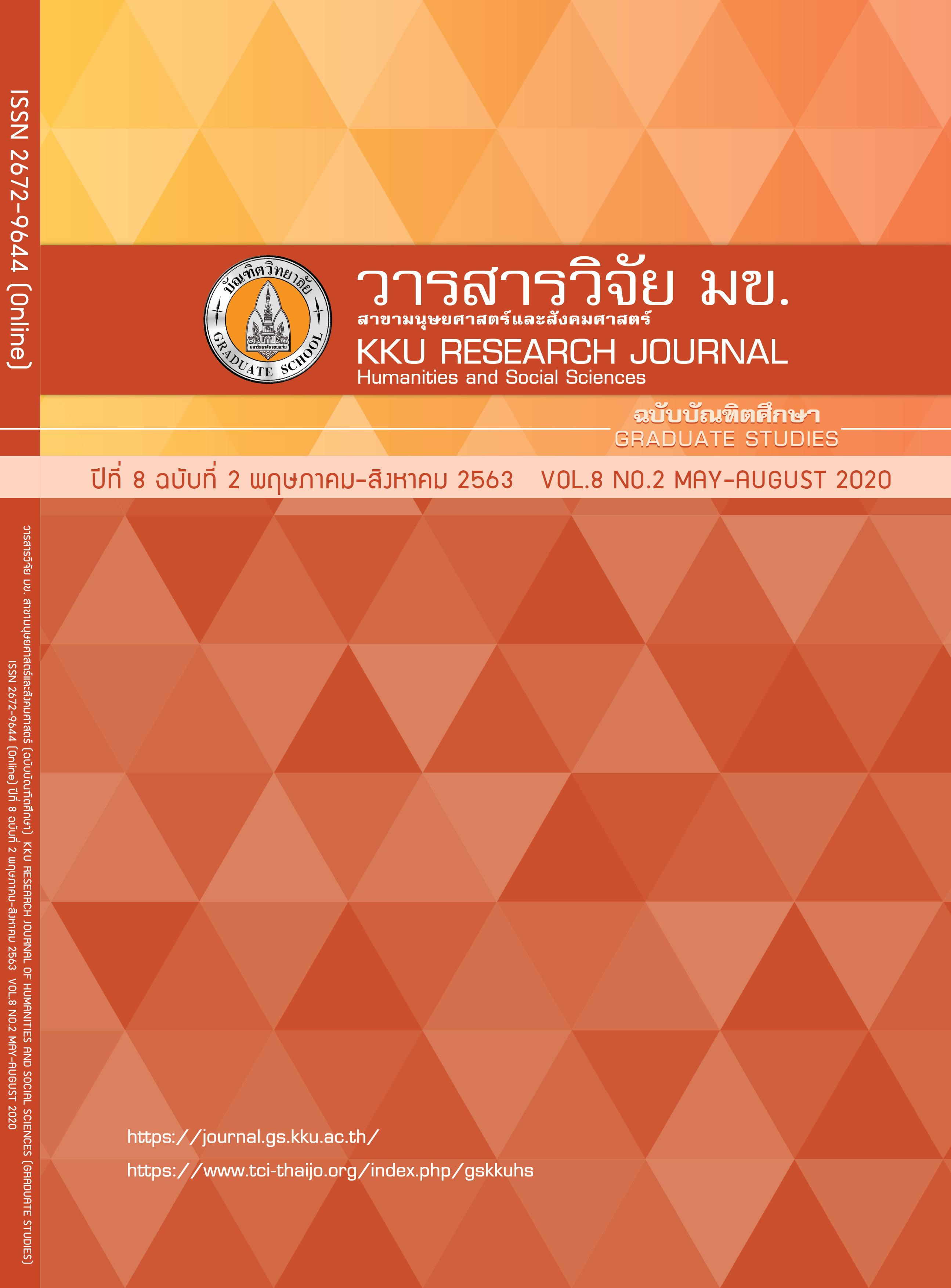The Synthesis of Instructional Model Blended learning base on A Constructivist’s Learning Concept to Enhance to Self-efficacy and Information Literacy of Undergraduate Student
Keywords:
Perceive self-efficacy, Information literacy, Blended instructional modelAbstract
This research aimed to synthesize instructional model and evaluate the blended learning based on a constructivist’s instructional model to enhance self-efficacy and information literacy. The 12 Experts were selected by purposive sampling. The research tools used in this research were the instructional model and evaluation form. Data was analyzed using the mean and standard deviation. The result revealed that the essential element of CBL-SEIL (Blended Learning – Constructivist’s - Self-Efficacy and Information Literacy) was composed of 4 elements as follows: first element: teaching preparation, second element: orientation, third element: encouraged procedures by self-efficacy and information literacy, finally fourth element: an award-winning presentation. The experts had some suggestions that the synthesized model was overall in a very good level ( = 4.69, S.D. = 0.39). The experts also accepted the classroom management activity in a good level ( = 4.36, S.D. = 0.50) and the overall result of using teaching model was a very good level (= 4.67, S.D. = 0.51). In conclusion, this instructional model was suitable.
References
Literacy Core Model For Higher Education [E-Book]. 2011
[cited 2019 April 21]. Available from: https://www.sconul.ac.uk/
sites/default/files/documents/coremodel.pdf
2. Catts R, Lau J. Towards information literacy indicators.
UNESDOC UNESCO Digital Library [Internet]. 2008
[cite 2019 Jan 20]. Available from: https://unesdoc.unesco.
org/ark:/48223/pf0000158723
3. Kanang Chettabut. Information Literacy: Learning skills.
UDRU research journal. 2008; 1(2): 12-15.
4. Satjaree S, Development of Information Literacy Skills
for Students in Governmental Higher Education Institutes
[PhD thesis]. Khon Kaen: Khon Kaen University; 2009.
5. Prapat P. The information literacy of students of
Ramkhamhaeng University. [PhD thesis]. Bangkok:
Ramkhaeng University.
6. Phapada J, Suphat S, Aree S. Information Literacy of
Undergraduate Students at Srinakharinwirot University.
Rungsit Information 2007; 13(2).
7. Bundy A. Australian and New Zealand information literacy
framework. Principles. 2th ed. standards and practice; 2004.
8. Neely TY. Sociological and psychological aspects of
information literacy in higher education: Scarecrow Press; 2002.
9. Bandura A. A Social Foundation of thought and action.
A Social Cognitive Theory. N.J.: Prentice-Hall; 1986.
10. Miltiadou M, Savenye W C. Applying social cognitive
constructs of motivation to enhance student success in
online distance education. Educational Technology Review
2003; 11(1).
11. Saifon B, Rungrudee A, Panomtian B, Porntip S.
The development of RMUTT students information literacy
skill. RMUTT research journal. 2009; 10(2): 1-10.
12. Siriporn Taweechart. The development of an Instruction
model base on resource-base learning to enhance information
literacy to lower secondary school student [PhD thesis].
Bangkok: Chulalongkorn University; 2002.
13. Bilawar P B, Pujar S. Information Literacy Models:
Correlation and Conceptual Model for Higher
Education; 2011.
14. Eisenberg M B. Information literacy: Essential skills
for the information age. DESIDOC Journal of Library &
Information Technology. 2010; 28(2): 39-47.
15. Gecer A K. An examination of studying approaches and
information literacy self- efficacy perceptions of prospective
teachers. elitism Aratırmaları-Eurasian Journal of Educational
Research. 2010; 49: 151-172.
16. Sriard B. Introduction to Research. 9th ed. Bangkok:
SE-EDUCATION Public Company Limited; 1970.




